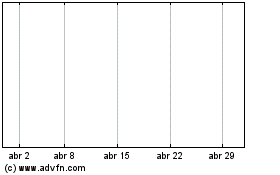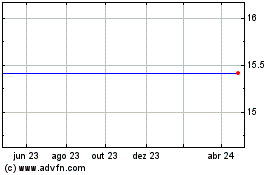By Mike Colias and Nora Naughton
This article is being republished as part of our daily
reproduction of WSJ.com articles that also appeared in the U.S.
print edition of The Wall Street Journal (January 4, 2020).
The multiyear boom in U.S. auto sales showed signs of easing in
2019 with major car companies reporting softer results and industry
executives predicting the slowdown would continue in 2020.
Auto makers reported year-end U.S. sales Friday. Analysts expect
the car industry to post a decrease of 1% to 2% in U.S. auto sales
for the year, once final numbers are compiled, to around 17 million
vehicle sales, defying earlier predictions of a sharper decline.
Those results came on the same day Tesla Inc. reported meeting a
lofty sales goal in 2019, defying speculation that demand for its
electric vehicles cars was dwindling.
The strong U.S. economy has buoyed many auto makers, while low
gas prices and a proliferation of new sport-utility vehicles have
helped steer consumers toward more expensive models, analysts and
industry executives say. Cheap leases, low interest rates and
longer loan terms have helped buyers fit pricier cars into
manageable monthly payments, while taking on more financial risk in
the process.
"Ten years ago it was like, 'Can we ever get to 17 million?'
said Jack Hollis, group vice president of Toyota's North American
subsidiary. "And now we're there every year."
Still, analysts and executives are monitoring potential threats
to new-vehicle demand in the U.S., including rising sticker prices,
analysts say. Industry forecasters expect a steeper sales drop this
year, to a range of 16.5 million to 16.8 million vehicles.
Car companies are leaning more on the resilient U.S. market to
fuel profits. Analysts expect the auto industry in China, the
world's largest auto market, to report later this month a decline
in sales in 2019 for the second straight year, after decades of
growth. Sales in the European Union were steady last year, but the
stricter emissions standards threaten to pinch car makers' profits,
industry analysts and executives say.
Trade tensions have eased since last year's U.S.-China clash
over auto tariffs and an amended North American trade pact remained
unsettled. With earnings under pressure, General Motors Co., Ford
Motor Co., Volkswagen AG and other auto giants embarked last year
on restructurings that included tens of thousands of layoffs and
factory closings.
The car industry is making costly bets on new technologies, such
as electric vehicles, leading to more consolidation and alliances
among auto makers. Fiat Chrysler Automobiles NV heads into 2020
with a merger agreement in hand with France's PSA Group, creating a
$50 billion company that would rank among the world's largest auto
makers by sales.
U.S. vehicle sales rose steadily since the financial crisis a
decade ago, when they bottomed out at 10.4 million in 2009. Sales
hit a record 17.6 million in 2016 and have bobbed along around the
17-million mark in recent years, providing an unusually steady
environment for an industry accustomed to cyclical swings.
GM's 2019 sales fell 2.3% for the year, dented largely by last
fall's 40-day United Auto Workers strike that brought more than 30
U.S. factories to a standstill and depleted dealerships'
new-vehicle inventories, the company said Friday. The Detroit auto
maker said its fourth-quarter sales fell 6% over the prior-year
period.
Fiat Chrysler's sales in the U.S. fell 1% last year, while
Toyota Motor Corp. reported a nearly 2% decline in U.S. sales.
Honda Motor Co. 2019 U.S. sales were flat, while Nissan Motor Co.
sales fell nearly 10%.
Ford is set to release year-end results Monday. Research firm
Cox Automotive estimates the auto maker's 2019 sales fell roughly
3%.
Tesla's sales rose 50% in 2019 to 367,500 deliveries. After
stumbling in its launch two years ago, its mass-market Model 3
posted a 47% sales increase in the fourth quarter alone. Chief
Executive Elon Musk is counting on the Model Y compact SUV,
expected to arrive this year, to drive more growth through
2020.
GM shares closed down nearly 2% Friday, more sharply than the
broader market decline. Fiat Chrysler shares were down 3.5%. Ford's
fell 1%.
While down slightly, U.S. sales outpaced most analysts'
forecasts. Buyers continued to pay more for new vehicles, drawn by
new technology and safety features as well as a growing affinity
for pricier SUVs and pickup trucks. SUV sales accounted for nearly
half the U.S. market through the first 11 months of 2019, according
to research firm J.D. Power. Pickup trucks also gained market
share, accounting for nearly a quarter of sales, while sedan sales
fell to about 28%, from 35% in the same period in 2017.
The industry faces potential headwinds in the U.S. in 2020. Car
dealers grappled with unusually large stockpiles of unsold vehicles
for much of last year and struggled to off-load older models,
forcing steeper discounts. Auto makers are spending more to lure
buyers, potentially heralding weaker demand and slower sales ahead,
analysts say. The industry's spending on sales incentives in recent
months hovered around 11% of a car's sticker price, the highest
level since 2008, according to J.D. Power.
New-car buyers increasingly are stretching to afford monthly
payments on rising sticker prices, analysts say. The average price
of a new vehicle reached an estimated record of $33,656 in 2019,
nearly 4% higher than a year earlier, J.D. Power said. That has
drawn consumers to used-car lots, which now offer more choices of
SUVs and where prices have fallen in recent months, analysts and
dealers say.
--Ben Foldy contributed to this article.
Corrections & Amplifications GM shares fell around 2% in
Friday morning trading. An earlier version of this article
incorrectly stated the fall took place Monday. (Jan. 3, 2020)
Write to Mike Colias at Mike.Colias@wsj.com
(END) Dow Jones Newswires
January 04, 2020 02:47 ET (07:47 GMT)
Copyright (c) 2020 Dow Jones & Company, Inc.
Stellantis NV (BIT:STLA)
Gráfico Histórico do Ativo
De Mar 2024 até Abr 2024

Stellantis NV (BIT:STLA)
Gráfico Histórico do Ativo
De Abr 2023 até Abr 2024
